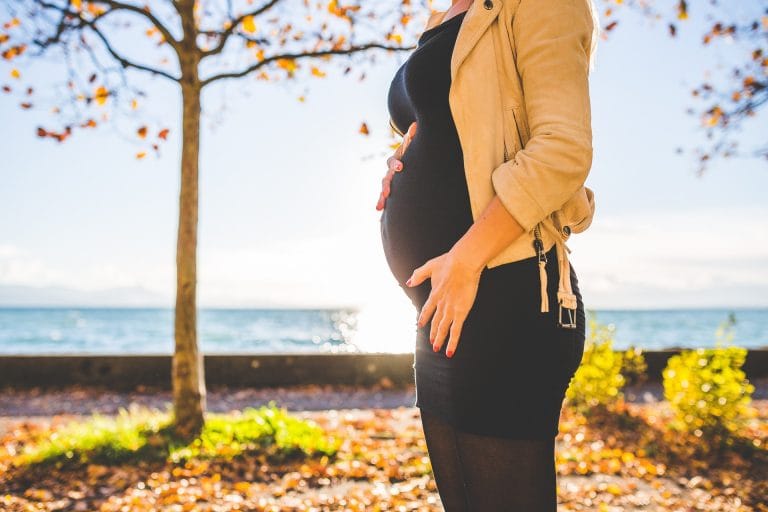Pregnancy is a beautiful journey filled with remarkable milestones, and it all begins with the earliest indications that a new life is growing inside. In the first week of pregnancy, many women are unaware of their condition, but there are subtle signs that can offer the first clue.
This article will unravel the mysteries of pregnancy symptoms in week 1 and guide you through this extraordinary beginning.
The Miracle of Conception: Understanding Week 1
At the start of pregnancy, most women don’t even realize they’re carrying a new life within them. But this week is where it all begins, and it’s worth understanding what’s happening in your body.
Fertilization and Implantation:
In week 1, the miracle of life begins with the fusion of an egg and a sperm. Fertilization usually takes place in the fallopian tube, and the fertilized egg, now called a zygote, embarks on its journey toward the uterus. By the end of the week, the zygote attaches itself to the uterine wall in a process called implantation.
Hormones and Pregnancy Symptoms:
Week 1 is a time of intense hormonal activity. Key hormones, such as human chorionic gonadotropin (hCG), begin to surge as the body recognizes and nurtures the pregnancy. These hormonal changes lay the foundation for the symptoms you might experience in the coming weeks.
Early Signs and Symptoms:
While week 1 is too early for most women to experience the telltale signs of pregnancy, there are subtle changes that might provide some hints:
01. Fatigue
Many women report feeling unusually tired during the first week of pregnancy. This fatigue can
be attributed to the increased levels of progesterone, a hormone that rises rapidly after conception.
02. Breast Changes:
Some women notice their breasts becoming slightly more sensitive and full during this time. Hormonal shifts are responsible for these early breast changes, and these symptoms may continue to evolve in the following weeks.
03. Mild Cramping:
Mild abdominal cramping is another possible symptom in week 1. It’s important to differentiate between these cramps and menstrual cramps, as the former can be a sign of implantation.
04. Spotting:
In some cases, a small amount of spotting or bleeding may occur during implantation. This is usually lighter than a typical menstrual period.
05. Mood Swings:
Even though it’s early in the pregnancy, some women experience mood swings during week 1. Fluctuations in hormones can result in emotional highs and lows. It’s crucial to recognize these changes as a normal part of the early stages of pregnancy.
06. Anxiety and Excitement:
Week 1 is often filled with a mix of emotions, including anxiety and excitement. As you begin to realize that you might be pregnant, it’s natural to feel a sense of anticipation and even apprehension about the journey ahead.
The Problem with High Functioning Depression
07. Headaches:
Some women report experiencing mild headaches in the early stages of pregnancy. These can be attributed to hormonal changes and increased blood flow. Ensuring you stay well-hydrated and get sufficient rest can provide relief from this particular symptom.
08. Bloating and Gas:
Hormonal changes can affect the digestive system, leading to increased bloating and gas. Eating smaller, more frequent meals and avoiding gas-inducing foods can help ease this discomfort.
09. Backache:
While less common in week 1, some women might experience a mild backache. This could be due to hormonal changes or changes in posture. Practicing good posture and avoiding heavy lifting can help reduce discomfort.
10. Changes in Libido:
Hormonal fluctuations can lead to changes in your sex drive. Some women might experience an increase in libido due to heightened sensitivity, while others might notice a decrease. These changes are entirely normal and can vary greatly from one woman to another. Ongoing communication with your partner is vital during this period.
Other Possible Symptoms in Week 1:
While not as common as the previously mentioned symptoms, some women might experience other early signs of pregnancy in week 1:
01. Increased Urination:
Hormonal changes can lead to increased blood flow to the pelvic area, which might cause some omen to notice more frequent urination even in this early stage of pregnancy.
02. Heightened Sense of Smell:
Some women might find themselves more sensitive to odors, and certain scents that were once pleasant may now be overwhelming.
03. Food Aversions:
Hormonal changes can affect your taste buds and make certain foods unappealing. It’s essential to listen to your body’s cues and eat what feels right.
04. Increased Cervical Mucus:
The increase in cervical mucus can be attributed to hormonal changes. This mucus plays a role in protecting and nourishing the sperm as it makes its journey to the egg.
Diet and Nutrition: Vital for a Healthy Pregnancy
Ensuring your baby’s well-being begins with proper nutrition. Folic acid, a crucial B-vitamin, is your shield against neural tube defects. Make it a part of your daily intake, just as your healthcare provider advises. And remember, hydration isn’t just a choice; it’s a necessity.
Water, the foundation of life, is even more critical now as your body nurtures the growth and
development of your precious embryo. Stay committed to taking folic acid and maintaining
proper hydration throughout your pregnancy journey.
01. Folic Acid: Preventing Neural Tube Defects Folic acid, a remarkable B-vitamin, stands as a crucial guardian against neural tube defects in your developing baby. This essential nutrient should be a non-negotiable part of your daily diet or as a supplement under the guidance of your healthcare provider.
02. Hydration: Nourishing Your Pregnancy: Staying well-hydrated is your commitment to a healthy start in your pregnancy journey. Water, the essence of life, becomes even more indispensable as your body devotes itself to the growth and development of your precious embryo. Embrace hydration as a fundamental component of your daily routine to ensure a healthy and flourishing pregnancy.
Lifestyle Adjustments: Nurturing a Safe Pregnancy Journey
In the very first week, you may not even be aware of your pregnancy, but it’s pivotal to start
making health-conscious choices.
01. Avoiding Harmful Substances:
In week 1, you may not even be aware of your pregnancy, but it’s crucial to start making
healthy choices. This includes avoiding harmful substances like alcohol, tobacco, and certain
medications that can harm the developing fetus. These choices will set the stage for a healthy
pregnancy.
02. Doctor’s Visit:
While you may not need to schedule a doctor’s visit in week 1, it’s wise to consider when and why you should have your first prenatal appointment. Prenatal care is crucial for monitoring your health and the development of your baby throughout the pregnancy. The Waiting Game: Navigating Early Pregnancy Decisions As you traverse week 1 and the anticipation of confirming your pregnancy builds, here’s what you need to know about taking a pregnancy test.
03. Taking a Pregnancy Test:
As you navigate week 1, you might be eager to confirm your pregnancy. However, it’s usually too early to get accurate results from a home pregnancy test. Most tests are designed to detect the pregnancy hormone hCG, which may not have reached detectable levels at this point. It’s best to wait until a week or two after your missed period for more accurate results.
04. Planning for the Journey Ahead:
While you wait for the right time to take a pregnancy test, you can start planning for the journey ahead. Begin researching and gathering information on prenatal care, childbirth options, and creating a support network.
Conclusion:
In week 1 of pregnancy, the journey begins with subtle but significant changes. Understanding these early signs is the first step toward embracing the extraordinary experience of motherhood. As you mbark on this remarkable journey, remember that each week brings new discoveries and precious moments. Stay tuned for our next installment as we explore pregnancy symptoms in week 2, where more noticeable changes and exciting developments await you.
Embrace this remarkable beginning and cherish every moment as you prepare for
the beautiful journey of pregnancy.
Frequently asked questions (FAQs)
Certainly, here are 5 frequently asked questions (FAQs) for the article
While it’s rare to notice typical pregnancy symptoms, some subtle changes like fatigue and
breast sensitivity may occur. However, it’s essential to remember that many women aren’t yet
aware of their pregnancy during this early stage.
It’s generally too early for most home pregnancy tests to provide accurate results in week 1.
These tests detect the hormone hCG, which might not be at detectable levels. Waiting until a
week or two after your missed period is recommended for more accurate results.
A balanced diet is key, and you should prioritize getting enough folic acid, which helps prevent neural tube defects. Consult your healthcare provider for specific dietary recommendations and consider taking a prenatal vitamin.
Yes, in most cases, you can continue with your regular activities. However, it’s crucial to
avoid harmful substances like alcohol, tobacco, and certain medications that can harm the
developing fetus.
While a doctor’s visit might not be necessary in week 1, it’s wise to plan your first prenatal
appointment. Prenatal care is essential for monitoring your health and the development of your
baby throughout the pregnancy. Consult your healthcare provider to determine the appropriate
timing.







